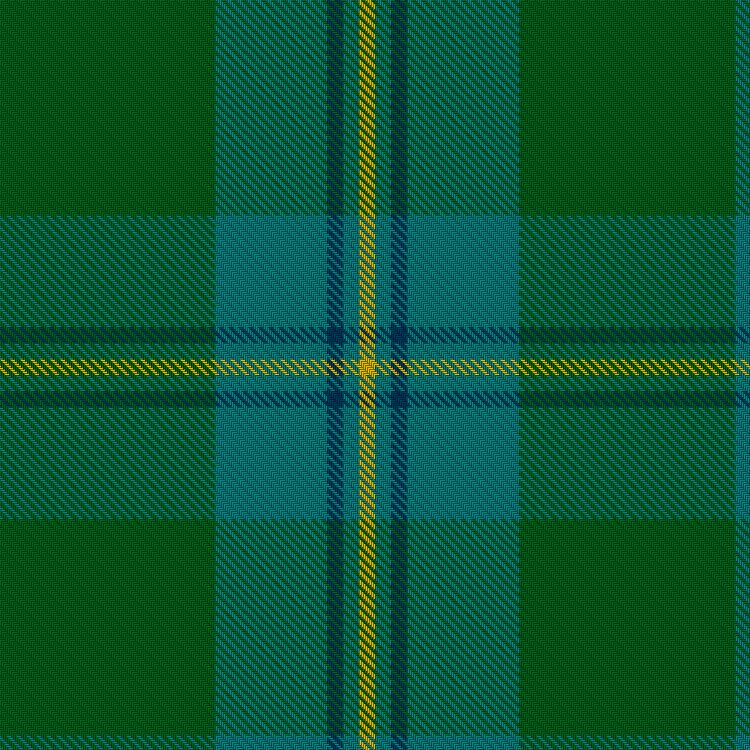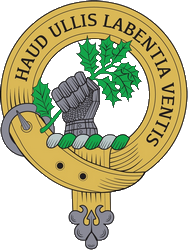
Irving of Bonshaw
|

|

Irvine generic
|
CREST: An arm gauntleted holding a branch of holly consisting of seven leaves all proper
MOTTO: Haud Ullis Labentia Ventis: Yielding Under No Winds
NAME VARIANTS: Irving, Irvine, Irvin, Ervin, Irwin, Erwin, Urwin – Across the history of the Clan, in literature, in genealogical records and in writings of all kinds, there have been many variations in the spelling of the Name
David I (1124-1153 AD) granted feudal superiority of Annandale in 1124 to the Norman family De Brus who retained it until accession to the throne of Scotland in 1306. The Irvings served De Brus and then four centuries later achieving independence in close alliance with the Johnstons. Robert De Brus was a guest at Bonshaw Tower in 1298 when he fled the English court of Edward I and tradition states he was hidden in a cave in the Kirtle cliffs at Cove on more than one occasion. In July 1484, the Duke of Albany and the Douglases were routed at the battle of the Kirtle, the Master of Maxwell was killed just across the Kirtle water from Bonshaw Tower and the Merkland Cross marks the spot. During the 16th century the Irvings of Bonshaw played a leading part in border warfare under the chiefship of Edward Irving of Bonshaw (1555-1605). During this century a feud existed between the Johnstons and Irvings and the Maxwells with their supporters. At the battle of Solway Moss in 1542, Christopher Irving of Bonshaw commanded the Light Horse, surviving the battle and continuing the resistance against Henry VIII with continued clashes from 1543 through to 1548. In 1554, the Kirkpatricks slew a younger son of Irving of Bonshaw who bided their time until 1563 when Edward Irving of Bonshaw, the new chief, slew the Chief of the Kirkpatricks of Closeburn. During 1585-1586, the Irvings and Johnstons were at war with the Maxwells and various clashes ensued. In December 1593, the Irving-Johnston alliance, under Sir James Johnston of Lochwood met the Maxwells at Dryfe Sands. This resulted in a crushing defeat on the Maxwells with Lord Maxwell being slain on the field. The Maxwells never fully recovered even to this day. During the Civil War in the middle of the 17th century, the Irvings supported the Royalists and anti-Presbyterians. The years following the 17th century saw a quieter period in the history of the border Irvings & Irvines, with several branches then establishing themselves in Canada, America, Australia and New Zealand.
For a printable pdf of this information, click
HERE


